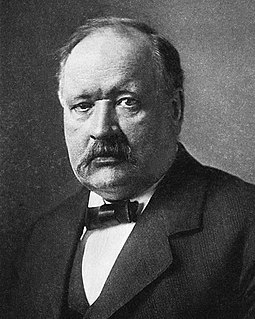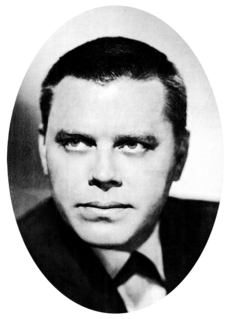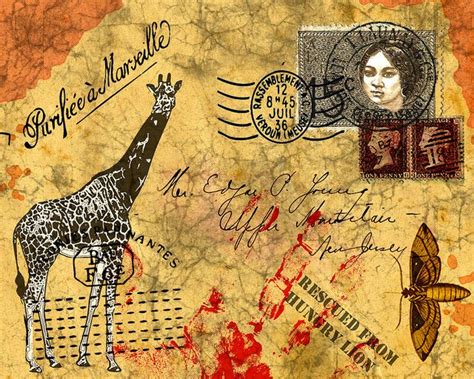Top 1200 Philosophers Love Quotes & Sayings
Explore popular Philosophers Love quotes.
Last updated on April 14, 2025.
Confronted with such a variety most philosophers try to establish one approach to the exclusion of all others. As far as they are concerned there can only be one true way- and they want to find it. Thus normative philosophers argue that knowledge is a result of the application of certain rules, they propose rules which in their opinion constitute knowledge and reject what clashes with them.
A couple of hundred years from now, maybe [science fiction writers] Isaac Asimov and Fred Pohl will be considered the important philosophers of the twentieth century, and the professional philosophers will almost all be forgotten, because they're just shallow and wrong, and their ideas aren't very powerful.
Philosophers feel a little more cautious about letting down their technical guard lest the general public doesn't recognize their special credentials. It's the fact that philosophy is of general interest that, paradoxically, keeps philosophers from wanting to speak in a way that's accessible to the general public.
At first sight nothing seems more obvious than that everything has a beginning and an end, and that everything can be subdivided into smaller parts. Nevertheless, for entirely speculative reasons the philosophers of Antiquity, especially the Stoics, concluded this concept to be quite unnecessary. The prodigious development of physics has now reached the same conclusion as those philosophers, Empedocles and Democritus in particular, who lived around 500 B.C.E. and for whom even ancient man had a lively admiration.
I argue is that philosophers have had a tendency to present a kind of mystical view of the powers of reflection. Unreflective belief acquisition is seen in mechanistic terms, but when philosophers talk about reflection, it is as if reflective processes are not bound by the kinds of limitations which inevitably arise from being embedded within the same causal structure which governs unreflective belief acquisition.
If moral statements are about something, then the universe is not quite as science suggests it is, since physical theories, having said nothing about God, say nothing about right or wrong, good or bad. To admit this would force philosophers to confront the possibility that the physical sciences offer a grossly inadequate view of reality. And since philosophers very much wish to think of themselves as scientists, this would offer them an unattractive choice between changing their allegiances or accepting their irrelevance.
Many philosophers say it's impossible to explain our conscious experience in scientific, biological terms at all. But that's not exactly true. Scientists have explained why we have certain experiences and not others. It's just that they haven't explained the special features of consciousness that philosophers care about.
The great philosophers of the 17th and 18th centuries did not think that epistemological questions floated free of questions about how the mind works. Those philosophers took a stand on all sorts of questions which nowadays we would classify as questions of psychology, and their views about psychological questions shaped their views about epistemology, as well they should have.
I am not sure just what Marx had in mind when he wrote that "philosophers have hitherto only interpreted the world in various ways; the point is to change it." Did he mean that philosophy could change the world, or that philosophers should turn to the higher priority of changing the world? If the former, then he presumably meant philosophy in a broad sense of the term, including analysis of the social order and ideas about why it should be changed, and how. In that broad sense, philosophy can play a role, indeed an essential role, in changing the world.
In regard to the philosophers, if they be true philosophers, i.e., lovers of truth, they should not be irritated that the earth moves. Rather, if they realize that they have held a false belief, they should thank those have shown them the truth; and if their opinion stands firm that the earth doesn't move, they will have reason to boast than be angered.
Worship is to feel in your heart and express in some appropriate manner a humbling but delightful sense of admiring awe and astonished wonder and overpowering love in the presence of that most Ancient Mystery, that Majesty which philosophers call the first cause, but which we call our Father which art in heaven.
Socrates: So even our walks are dangerous here. But you seem to have avoided the most dangerous thing of all. Bertha: What's that? Socrates: Philosophy. Bertha: Oh, we have philosophers here. Socrates: Where are they? Bertha: In the philosophy department. Socrates: Philosophy is not department. Bertha: Well, we have philosophers. Socrates: Are they dangerous? Bertha: Of course not. Socrates: Then they are not true philosophers.
If I am mistaken in my opinion that the human soul is immortal, I willingly err; nor would I have this pleasant error extorted from me; and if, as some minute philosophers suppose, death should deprive me of my being, I need not fear the raillery of those pretended philosophers when they are no more.
Am I in love? Absolutely. I'm in love with ancient philosophers, foreign painters, classic authors, and musicians who have died long ago. I'm a passionate lover. I fawn over these people. I have given them my heart and my soul. The trouble is, I'm unable to love anyone tangible. I have sacrificed a physical bond, for a metaphysical relationship. I am the ultimate idealistic lover.
Philosophy used to be a field that had content, but then 'natural philosophy' became physics, and physics has only continued to make inroads. Every time there's a leap in physics, it encroaches on these areas that philosophers have carefully sequestered away to themselves, and so then you have this natural resentment on the part of philosophers.
Methodological naturalism gives advice to scientists about what they should include in their theories. There is a second type of methodological naturalism that gives advice to philosophers, which I call "methodological naturalismp." It says that the methods that philosophers should use in assessing philosophical theories are limited to the methods that scientists ought to use in assessing scientific theories.
While I do not agree with all of the claims made by experimental philosophers, especially those who seem to think xphi will somehow replace the rest of philosophy, I think xphi projects are interesting and important, I love Josh Knobe's work, and that these projects contribute something new and worthwhile to the philosophical conversation.
The kind of approach I take is different from much of experimental philosophy. Although the experimental philosophers and I are certainly in agreement about the relevance of empirical work to philosophy, a good deal of their work is devoted to understanding features of our folk concepts, and in this respect, at least, I see them as making the same mistake as those armchair philosophers who are interested in conceptual analysis.
I had no idea what philosophy was until I went to college at UBC. I first read Hume and Plato, so naturally I was under the misapprehension that philosophers are trying to figure out what is true, and that contemporary philosophers are mainly trying to figure out what is true about the mind. Of course Hume and Plato were trying to do that, hence my misapprehension.
Philosophy used to be a field that had content, but then natural philosophy became physics, and physics has only continued to make inroads. Every time theres a leap in physics, it encroaches on these areas that philosophers have carefully sequestered away to themselves, and so then you have this natural resentment on the part of philosophers.
I think the nature of songwriters is that they are philosophers, and philosophers have a bent towards poetry and songwriting, so I think that the two run around together. The nature of a songwriter could be philosophical. Looking for universal ideas, a way to say things, get the story across as a means of entertaining, provoking thought.
Let divines and philosophers, statesmen and patriots, unite their endeavors to renovate the age by impressing the minds of men with the importance of educating their little boys and girls, inculcating in the minds of youth the fear and love of the Deity... and leading them in the study and practice of the exalted virtues of the Christian system.
I think one reason is that philosophers are more insecure to speak accessibly because non-philosophers are skeptical that philosophers have any special expertise. After all, all people - not just philosophers - have attitudes and points of view on various philosophical questions, and they rather resent being told that there are professionals who can think about these things better.
There is a sort of myth of History that philosophers have.... History for philosophers is some sort of great, vast continuity in which the freedom of individuals and economic or social determinations come and get entangled. When someone lays a finger on one of those great themes--continuity, the effective exercise of human liberty, how individual liberty is articulated with social determinations--when someone touches one of these three myths, these good people start crying out that History is being raped or murdered.
I have loved you in every manner that my imagination could contrive. I have wanted you so deeply that my body sang with pain and pleasure. You have been my obsession, my passion, my philosophers' stone of fantasy. You are my desire, my longing, my spirit. I love you unconditionally. - Sabine Strohem













































